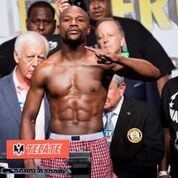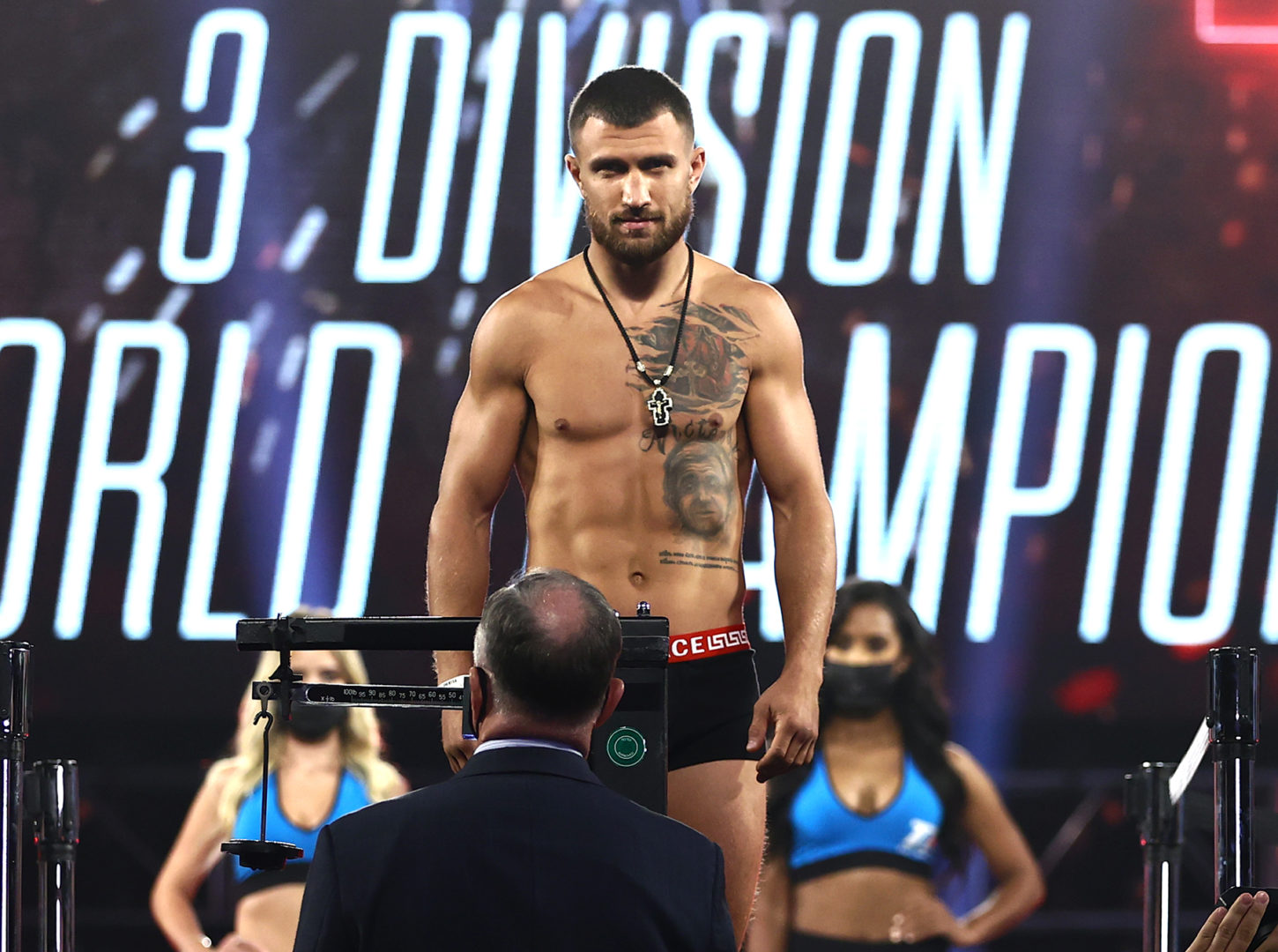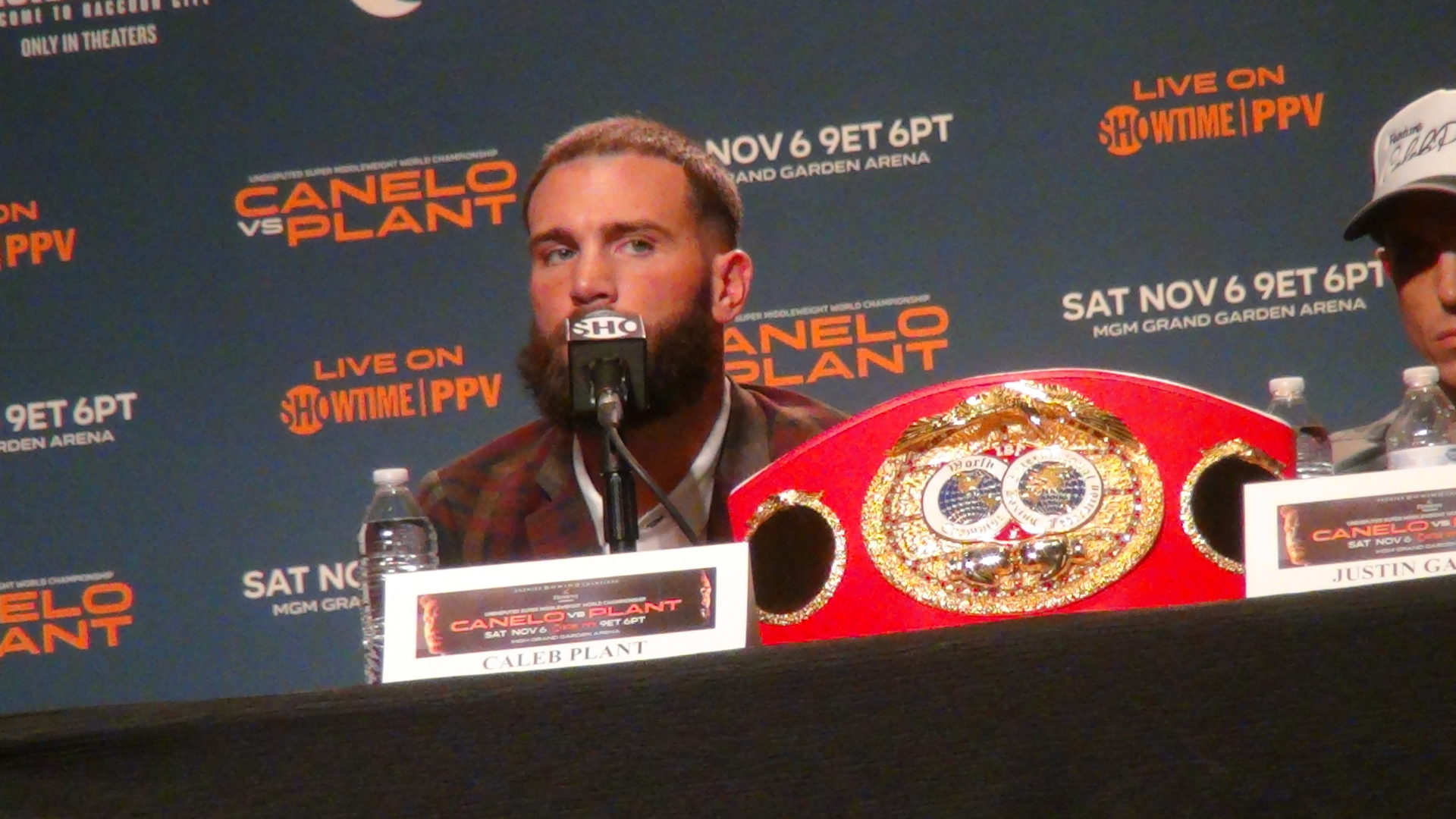By Norm Frauenheim

Bankers, Floyd Mayweather Jr., Manny Pacquiao, a handful of promoters and network executives can celebrate a year about to enter the books. Money ruled, which means it was Mayweather’s year. He fulfilled his nickname. Got most of the money, too.
But good for the business?
No way.
By definition, prizefighting is a simple enough formula. To wit: Get the biggest prize for the smallest risk. In 2015, Mayweather played that one out better than anyone ever has. As the year ends, there continues to be unconfirmed reports that receipts for his revenue-record setting victory over Pacquiao on May 2 are still being counted. Numbers are all over the place.
We read that his final purse is $220 million, then $260 million, which would rank the money for his 12 rounds of work somewhere between the Los Angeles Dodgers ($291 million) and the New York Yankees ($223 million) at the top of baseball’s last list of reported payrolls.
Hard to know what to believe. But there he is, in Dubai one day, in a new Bugati the next and always ready to make it rain by stuffing his bags with disposable cash.
Mayweather has gone from the top of the pound-for-pound list to being the face of the one percent. Let somebody a lot smarter than a boxing writer be the judge of that. But give Mayweather credit, not that he needs it. He might not have been TBE in the ring. But he ranks as The Best Earner in history and that figures to be undisputed for a while.
In the wake of a winner-take-all model that enriched him, however, there are consequences that could confront the game with a steep price in 2016 and beyond. HBO’s Jim Lampley said it best in the wake of his dull decision over Pacquiao, whose role as the junior partner in the money grab earned him north of $150 million.
Lampley called it a cynical exercise.
It was. As the year ends, coffers are filled, yet there’s an empty feeling about what was really accomplished. Does anybody other than Mayweather think the game is better for the exercise? Didn’t think so.
A sign of that emptiness is in the year-end ritual of voting for the various awards. Fighter of the Year is the biggie. But it’s a tough choice this time. On this ballot, the dreaded No Award, always a contender in a lot of categories, is an option. Yeah, Tyson Fury beat Wladimir Klitschko, but I’d cast a vote for Donald Trump before I’d vote for an okay heavyweight who reserves most of the fury for his insults.
The guess here is that Nicaraguan flyweight Roman Gonzalez wins, but his likely election looks to be more of a concession to a brilliant career (44-0, 38 KOs) ignored until HBO finally decided to pair him up with middleweight Gennady Golovkin in a couple of telecasts
An astonishing and worrisome aspect to the Gonzalez phenomenon goes back to where this column starts. Follow the money. In 2015, Gonzalez became the lightest ever to ascend to No. 1 in The Ring’s pound-for-pound rankings. He succeeded Mayweather after Mayweather’s announced retirement following a victory in September over Andre Berto.
The dollars, however, didn’t follow Gonzalez’ climb up the pound-for-pound scale. During his reign at No. 1, Mayweather earned a minimum of $32-million a fight through his six-fight deal with Showtime. In Gonzalez’ October stoppage of Brian Viloria in his second HBO appearance and in the immediate aftermath of his introduction as the pound-for-pound No. 1, he earned a career-high $250,000. Mayweather stuffs more than that into one of those carry-ons.
For Gonzalez, the pound-for-pound title represents little more than an honorarium. The Grand Canyon-like disparity on the pay scale, however, includes a more troubling aspect. It represents a lack of investment in lighter weights that have often sustained the business during periods of transition and/or trouble. HBO’s interest in Gonzalez is promising. Perhaps, it’s the beginning of an investment.
But the long-term trend is not good. Consider this: In the two-plus decades since junior-flyweights Michael Carbajal and Humberto Gonzalez earned $1-million purses for fighting each other three times in 1993 and 1994, there’s been no raise in pay for the little guys, who in some ways are to boxing what the working middle class is to an economy. There are no good undercards without them. Yet, they’re getting paid a lot less now than they did a few generations ago.
In stature and impact, they are so small that they often don’t seem to matter. But it’s the little things that often reveal a lot about a business and these days they appear to be troublesome fly in a problematic ointment.






















